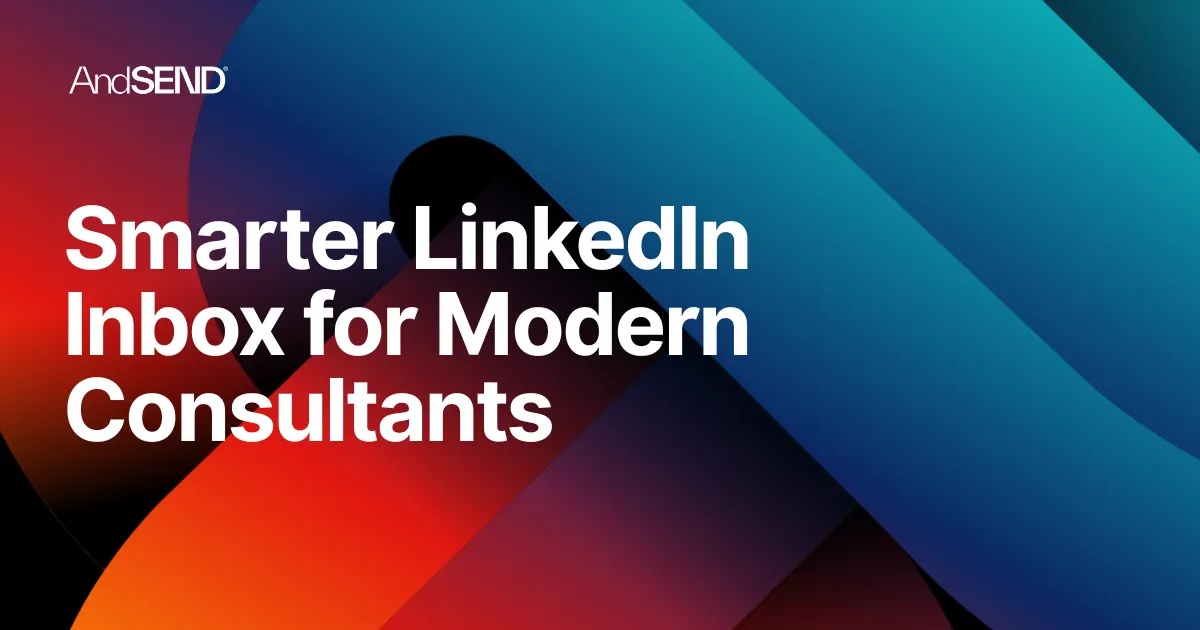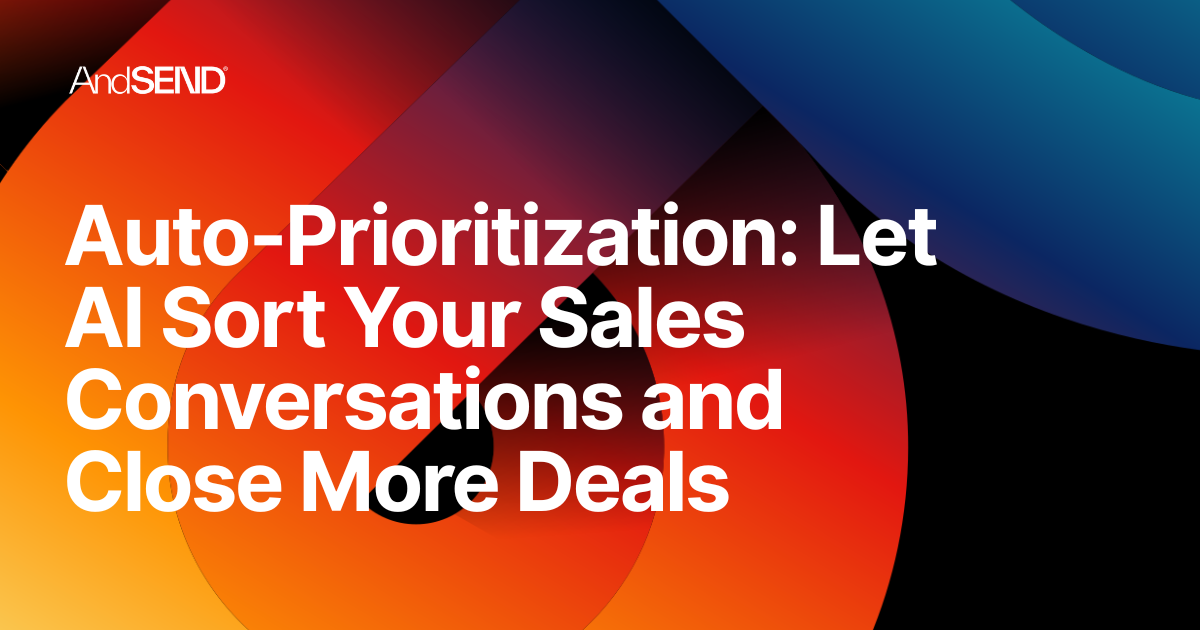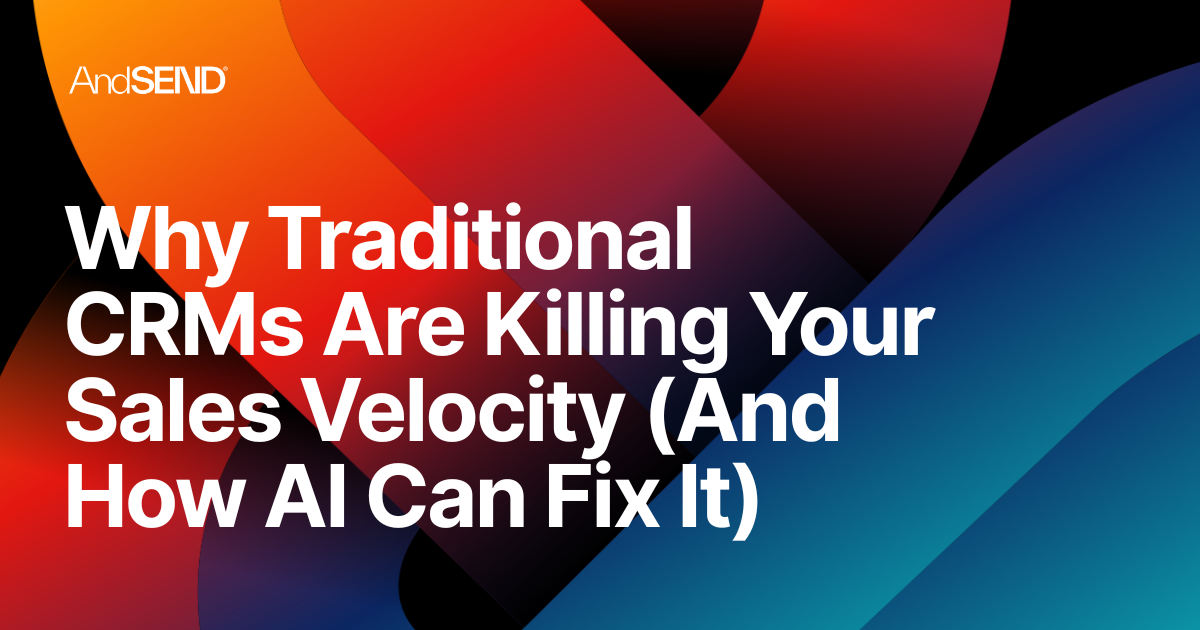What is a Customer Relationship Agent?
Published: 10/6/2025
Have you ever found yourself staring at your LinkedIn notifications, wondering which connection deserves your attention today? Or scrolled through dozens of unread emails, feeling that nagging sensation that important opportunities are slipping through the cracks? You're experiencing what psychologists call "relationship bandwidth limitation" – our brain's fundamental inability to maintain meaningful connections beyond Dunbar's number (roughly 150 people).
Yet in today's hyperconnected professional landscape, successful careers often depend on nurturing hundreds, even thousands of valuable relationships across multiple platforms. The cognitive dissonance is real: we know relationship quality matters, but we lack the mental bandwidth to deliver it at scale.
Enter the Customer Relationship Agent – an intelligent partner that transcends traditional networking tools by helping you discover hidden opportunities across your professional ecosystem and strategically nurture the relationships that matter most to your goals.
This guide explores how Customer Relationship Agents are transforming professional relationship management from a stress-inducing juggling act into a strategic advantage, with insights into how these tools align with our psychological needs for both connection and efficiency.
Roles and Responsibilities of a Customer Relationship Agent
Handling Customer Inquiries & Complaints
Cognitive science reveals a fascinating pattern in professional relationships: we dramatically overestimate our ability to remember important details about our connections. Studies from Harvard Business School show that professionals recall only about 17% of significant personal and professional details shared in previous conversations – creating a "relationship amnesia" that undermines connection quality.
A Customer Relationship Agent addresses this cognitive limitation by:
- Surfacing critical relationship context before you respond to inquiries
- Helping you identify the emotional undercurrents in complex communications
- Suggesting personalized response approaches based on relationship history
- Providing the full picture of previous interactions across platforms
- Ensuring your responses acknowledge relationship history appropriately
This contextual support transforms inquiries from isolated interactions into relationship-building opportunities, allowing you to respond with the kind of thoughtful personalization that builds genuine professional trust.
Building Long-Term Professional Relationships
The psychology of professional networks reveals a consistent pattern: the most valuable opportunities often emerge from dormant connections – relationships that have gone quiet but retain goodwill and potential. Research from MIT shows these dormant ties often provide more novel information and opportunities than active connections, yet most professionals lack systematic approaches to reactivating them.
Customer Relationship Agents excel at helping you:
- Identify dormant relationships with high strategic potential
- Create personalized re-engagement strategies for valuable connections
- Develop relationship "Playbooks" aligned with specific professional goals
- Maintain consistent touchpoints with high-value connections
- Track relationship momentum across your entire professional ecosystem
By transforming relationship nurturing from a haphazard, memory-dependent activity into a strategic system, these tools help you build the kind of relationship capital that drives career advancement and business opportunities.
Upselling and Cross-Selling Products/Services
The psychology of professional influence contains a fascinating paradox: direct selling often creates resistance, while relationship-based approaches generate openness. According to research from the Journal of Applied Psychology, recommendations perceived as self-serving trigger psychological reactance, while those seen as mutually beneficial activate receptivity.
Customer Relationship Agents help navigate this delicate balance by:
- Identifying when relationships have reached appropriate stages for advancement
- Suggesting value-oriented conversation approaches that emphasize mutual benefit
- Helping craft messages that position offerings as solutions to known challenges
- Providing relationship context that informs timing and approach
- Guiding follow-up strategies that maintain relationship quality during sales conversations
This transformation – from transaction-focused selling to relationship-based value creation – aligns perfectly with how our brains naturally make trust-based decisions.
Collecting Customer Feedback
Psychological research on self-disclosure reveals an intriguing pattern: people share more honest feedback within the context of established relationships where psychological safety exists. Yet most feedback collection relies on impersonal surveys that fail to leverage this relationship foundation.
Customer Relationship Agents help you gather more meaningful insights by:
- Identifying optimal moments for feedback conversations
- Suggesting personalized outreach that references relationship history
- Helping craft questions that elicit genuine rather than socially desirable responses
- Capturing informal feedback shared during normal communications
- Tracking feedback patterns across your relationship ecosystem
This approach transforms feedback from a mechanical process into a relationship-deepening exchange that yields more actionable insights while strengthening connections.
Collaborating with Sales & Support Teams
Organizational psychology highlights a consistent challenge in professional relationships: the fragmentation of connection across multiple team members creates what researchers call "relationship inconsistency" – a phenomenon that dramatically undermines trust.
Customer Relationship Agents help overcome this challenge by:
- Providing relationship context to all team members who engage with connections
- Ensuring consistent messaging across platforms and team interactions
- Highlighting engagement opportunities that span departmental boundaries
- Tracking relationship health indicators visible to the entire team
- Surfacing insights that help coordinate relationship development efforts
This coordination transforms disjointed interactions into cohesive relationship experiences, dramatically enhancing professional trust and engagement.
Key Skills for a Customer Relationship Agent
Communication & Active Listening
The neuroscience of professional communication reveals a fascinating insight: connection quality depends less on what's said and more on how well previous communications are remembered and incorporated. When we refer back to earlier conversations, we activate the brain's recognition centers – creating a powerful sense of being valued.
A sophisticated Customer Relationship Agent enhances your communication by:
- Surfacing relevant details from previous exchanges
- Identifying communication patterns specific to each relationship
- Suggesting personalized language that resonates with each connection
- Helping craft messages that demonstrate genuine listening
- Tracking communication effectiveness across your network
This enhanced communication capability doesn't replace your authentic voice – it amplifies it by ensuring every interaction builds upon the foundation of your relationship history.
Problem-Solving & Conflict Resolution
Relationship psychology reveals an intriguing truth about professional conflicts: resolution success depends less on the specific solution and more on how well the approach acknowledges relationship context. The most damaging element in professional disputes isn't disagreement itself but rather the feeling of not being understood.
Customer Relationship Agents help navigate these sensitive situations by:
- Providing complete relationship history during challenging interactions
- Suggesting resolution approaches based on connection patterns
- Helping craft responses that acknowledge emotions while moving forward
- Identifying when channel switching (email to call, etc.) would be beneficial
- Monitoring relationship recovery after conflicts
This contextual support transforms potential relationship damage into opportunities for strengthening professional connections through demonstrated understanding.
CRM Software Proficiency
The cognitive burden of managing relationships across multiple platforms creates what psychologists call "attention residue" – the mental energy wasted when switching between systems. Studies show professionals lose up to 40% of their productive relationship time to this platform-switching tax.
Customer Relationship Agents eliminate this burden by:
- Integrating seamlessly with LinkedIn, email, and CRM systems
- Surfacing relationship opportunities across platforms in a unified interface
- Helping implement relationship Playbooks that span multiple channels
- Providing cross-platform insights without requiring manual data consolidation
- Tracking relationship health indicators regardless of where interactions occur
This integration transforms relationship management from a fragmented, multi-system challenge into a cohesive experience focused on connection quality rather than platform navigation.
Empathy & Patience
The psychology of digital relationships reveals a counterintuitive truth: empathy often decreases as relationship volume increases. This "empathy dilution" occurs not because professionals care less, but because the cognitive load of tracking multiple relationships depletes the mental resources required for genuine understanding.
Customer Relationship Agents help overcome this limitation by:
- Surfacing personal details that facilitate authentic connection
- Providing relationship context that enables more empathetic responses
- Suggesting personalized approaches based on individual preferences
- Reminding you of important personal milestones and interests
- Helping maintain relationship momentum despite competing demands
This partnership preserves your natural empathic abilities by reducing the cognitive overhead of relationship tracking, allowing you to direct emotional energy toward meaningful connection rather than administrative recall.
Time Management & Multitasking
Neuroscience provides clear evidence that relationship multitasking creates significant cognitive costs. Each time you switch relationship contexts, your brain experiences what researchers call "attention residue," reducing effectiveness by up to 40% and creating mental exhaustion.
Customer Relationship Agents address this fundamental limitation by:
- Helping you prioritize professional relationships based on strategic goals
- Surfacing timely opportunities for meaningful connection
- Drafting personalized outreach that can be quickly reviewed and sent
- Maintaining relationship momentum when your focus is required elsewhere
- Ensuring no valuable connection gets lost in the networking shuffle
This cognitive support transforms relationship management from a reactive scramble to a strategic system, allowing you to nurture hundreds of valuable professional connections without the mental exhaustion typically involved.
Benefits of Using a Customer Relationship Agent
Discovering Hidden Opportunities
The network theory of professional success reveals a paradoxical insight: our most valuable opportunities often hide in plain sight within our existing networks. Research from Stanford shows that roughly 70% of professional opportunities come through second-degree connections – people who know people we know – yet most of us lack the cognitive capacity to map these potential pathways.
Customer Relationship Agents transform this hidden landscape into visible opportunities by:
- Identifying dormant connections with high strategic value
- Mapping relationship patterns that suggest untapped potential
- Surfacing second-degree connections relevant to your goals
- Recognizing timing signals that indicate relationship readiness
- Suggesting strategic reactivation approaches for valuable dormant ties
Users report discovering 3-5 significant opportunities within their existing networks within the first month of implementation – connections that were always available but previously invisible without relationship intelligence support.
Strategic Relationship Nurturing
The psychology of professional relationship development follows predictable patterns, yet most networking approaches rely on intuition rather than strategy. Research from Wharton Business School reveals that systematic relationship nurturing outperforms intuitive approaches by 3.7x in generating meaningful professional opportunities.
Customer Relationship Agents enable this systematic approach through Playbooks – strategic relationship development sequences that:
- Define clear relationship objectives aligned with professional goals
- Create personalized nurturing sequences for different relationship types
- Suggest optimal timing for each relationship advancement step
- Provide message drafts that maintain your authentic voice
- Track relationship progression across your entire network
These Playbooks transform relationship development from hopeful guesswork into strategic progression, dramatically increasing the conversion of connections into meaningful professional opportunities.
Cross-Platform Relationship Intelligence
The fragmentation of professional relationships across LinkedIn, email, CRMs, and messaging platforms creates what psychologists call "relationship context switching" – a cognitive burden that dramatically reduces our capacity for meaningful connection.
Customer Relationship Agents eliminate this burden by:
- Unifying relationship data across all your professional platforms
- Providing complete interaction history regardless of channel
- Surfacing relationship insights from across your digital ecosystem
- Suggesting optimal channels for different types of communication
- Tracking relationship health indicators across platforms
This integration creates what relationship psychologists call "unified relationship perception" – the ability to see and nurture connections holistically rather than in platform-specific fragments.
Reduced Cognitive Load
The psychological research on attention reveals a critical insight: relationship management consumes enormous cognitive resources. Each relationship we attempt to maintain occupies what neuroscientists call "attention residue" – mental energy dedicated to remembering details, tracking status, and planning next steps.
Customer Relationship Agents dramatically reduce this cognitive burden by:
- Handling the memory aspects of relationship management
- Surfacing opportunities that require your attention now
- Managing relationship timing without conscious tracking
- Suggesting personalized outreach that requires minimal customization
- Maintaining relationship momentum during periods of focus elsewhere
Users report experiencing what psychologists call "attentional relief" – a noticeable decrease in mental fatigue and corresponding increase in relationship quality and professional effectiveness.
How Customer Relationship Agents Use Playbooks
What Are Relationship Playbooks?
Relationship Playbooks represent a fundamental evolution in professional networking – transforming nebulous "stay in touch" goals into structured relationship development pathways aligned with specific objectives.
At their core, Playbooks are strategic relationship sequences that define:
- Clear relationship objectives (new opportunities, partnerships, mentorship, etc.)
- Logical progression stages for different relationship types
- Optimal timing between relationship touchpoints
- Messaging approaches appropriate for each stage
- Success indicators that signal relationship advancement
This structured approach aligns perfectly with what psychology teaches us about relationship development – that meaningful connections follow predictable patterns that can be intentionally cultivated rather than left to chance.
Creating Effective Playbooks
The most successful Playbooks balance structure with authenticity, providing guidance without sacrificing the genuine connection essential for professional relationships. Effective Playbooks typically:
- Begin with clarity about relationship goals and mutual value
- Define progressive engagement steps appropriate to the relationship type
- Include personalization elements that maintain authentic connection
- Incorporate timing flexibility based on relationship signals
- Feature message templates that reflect your natural communication style
Customer Relationship Agents help implement these Playbooks by surfacing the right connections at the right time, suggesting appropriate messaging, and tracking relationship progression – all while maintaining your authentic voice.
Measuring Playbook Effectiveness
The most sophisticated relationship development approaches incorporate what psychologists call "relationship feedback loops" – systematic ways to evaluate what's working and refine approaches accordingly.
Customer Relationship Agents provide these insights by tracking:
- Response rates to different outreach approaches
- Relationship progression metrics across your network
- Engagement patterns that indicate increasing connection strength
- Conversion of relationships into tangible opportunities
- Return on relationship investment across different Playbook types
This measurement capability transforms relationship development from subjective feeling to objective strategy, allowing continuous refinement of your professional networking approach.
Customer Relationship Agent vs. Traditional Networking Approaches
Key Differences in Approach
While traditional networking focuses on connection quantity and manual tracking, Customer Relationship Agents emphasize quality and strategic development:
| Dimension | Traditional Networking | Customer Relationship Agent |
| Focus | Connection acquisition | Relationship development |
| Strategy | Intuitive and ad-hoc | Systematic and goal-oriented |
| Coverage | Limited by cognitive capacity | Comprehensive across network |
| Timing | Reactive or calendar-driven | Strategic and signal-based |
| Personalization | Generic or time-intensive | Effortlessly personalized |
| Platform integration | Fragmented across systems | Unified relationship view |
| Opportunity discovery | Limited to active connections | Includes dormant and second-degree |
| Mental load | High cognitive burden | Dramatically reduced |
Understanding these fundamental differences explains why traditional networking often feels exhausting and ineffective, while relationship-intelligence approaches yield consistent results with less effort.
Which Professionals Benefit Most?
While relationship intelligence benefits anyone whose success depends on professional connections, certain roles see particularly dramatic results:
Consultants and Service Providers:
- Maintain warm relationships with past and potential clients
- Identify expansion opportunities within existing client networks
- Nurture relationships during long business development cycles
Executives and Leaders:
- Strengthen strategic relationships across industry ecosystems
- Maintain meaningful connections despite limited time
- Develop potential partnerships through systematic nurturing
Sales Professionals:
- Convert LinkedIn connections into meaningful sales conversations
- Maintain relationship momentum throughout long sales cycles
- Develop trusted advisor relationships rather than transactional interactions
Entrepreneurs and Founders:
- Nurture investor and advisor relationships strategically
- Maintain connection with potential customers and partners
- Leverage existing network for introductions and opportunities
The common thread is clear: whenever professional success depends on relationship quality rather than just quantity, Customer Relationship Agents provide transformative advantages.
Conclusion
The emergence of Customer Relationship Agents represents a fundamental evolution in professional networking – one that aligns technological capabilities with psychological realities. By helping us discover hidden opportunities, nurture relationships strategically, and maintain connection quality at scale, these tools address the fundamental gap between our relationship aspirations and our cognitive limitations.
The most profound benefit isn't just efficiency – it's the psychological relief that comes from knowing your professional relationships are being systematically strengthened rather than randomly maintained. Users consistently report not just better results, but significantly reduced relationship anxiety and increased confidence in their networking approach.
In a professional landscape where relationship capital increasingly determines success, Customer Relationship Agents offer something truly valuable: the ability to build and maintain meaningful connections at a scale previously impossible. They don't replace your authentic voice or personal touch – they amplify them, ensuring your limited relationship energy goes toward genuine connection rather than administrative overhead.
For professionals who recognize that their network represents their most valuable asset, partnering with a Customer Relationship Agent isn't just a technological choice – it's a strategic investment in sustainable relationship development aligned with your most important professional goals.
Frequently Asked Questions (FAQs)
1. How does a Customer Relationship Agent differ from LinkedIn or other networking tools?
The difference lies in both functionality and psychological approach. LinkedIn and similar platforms excel at connection acquisition and basic interaction, essentially providing the infrastructure for potential relationships. However, they offer limited support for systematic relationship development, opportunity discovery, or strategic nurturing.
Customer Relationship Agents build upon this foundation by helping you transform connections into meaningful professional relationships through:
- Intelligent prioritization based on relationship potential and alignment with goals
- Strategic development sequences (Playbooks) rather than ad-hoc interactions
- Discovery of dormant opportunities within your existing network
- Cross-platform relationship intelligence (LinkedIn, email, CRM)
- Reduced cognitive burden through relationship management assistance
Think of it this way: LinkedIn helps you collect connections, while a Customer Relationship Agent helps you transform those connections into valuable professional relationships that advance your specific goals.
2. Will using relationship intelligence make my networking feel artificial?
This concern stems from a common misconception about authenticity in professional relationships. Psychological research reveals an interesting paradox: strategic relationship approaches often create more authentic connections because they reduce the cognitive burden that leads to generic interactions.
When overwhelmed by relationship volume, most professionals default to what psychologists call "cognitive efficiency shortcuts" – generic messages and surface-level engagement. By contrast, Customer Relationship Agents free up mental bandwidth by handling relationship logistics, allowing you to focus your energy on genuine connection.
The most sophisticated agents like Andsend learn your communication style and preferences, ensuring that suggested messages reflect your authentic voice while incorporating relationship context that demonstrates genuine interest and understanding.
3. How long does it take to see results from a Customer Relationship Agent?
Professional relationship development follows predictable psychological patterns with corresponding timelines. Most users report meaningful results that align with these natural relationship rhythms:
- Immediate relief from relationship tracking anxiety (1-3 days) The psychological burden of trying to remember and manage relationships lifts almost immediately.
- Rediscovery of valuable dormant connections (1-2 weeks) Users typically discover 3-5 high-potential opportunities hiding within their existing networks.
- First relationship reactivation successes (2-4 weeks) Strategic outreach to dormant connections begins generating meaningful responses and conversations.
- Tangible opportunity development (4-8 weeks) Systematically nurtured relationships begin converting into actual professional opportunities.
- Sustainable relationship development system (2-3 months) A complete relationship development approach emerges that consistently generates opportunities.
The key to accelerating results is implementing relationship Playbooks aligned with your specific goals, allowing the agent to help you develop the right relationships in the right ways for your professional objectives.
Check out the rest of the blog





